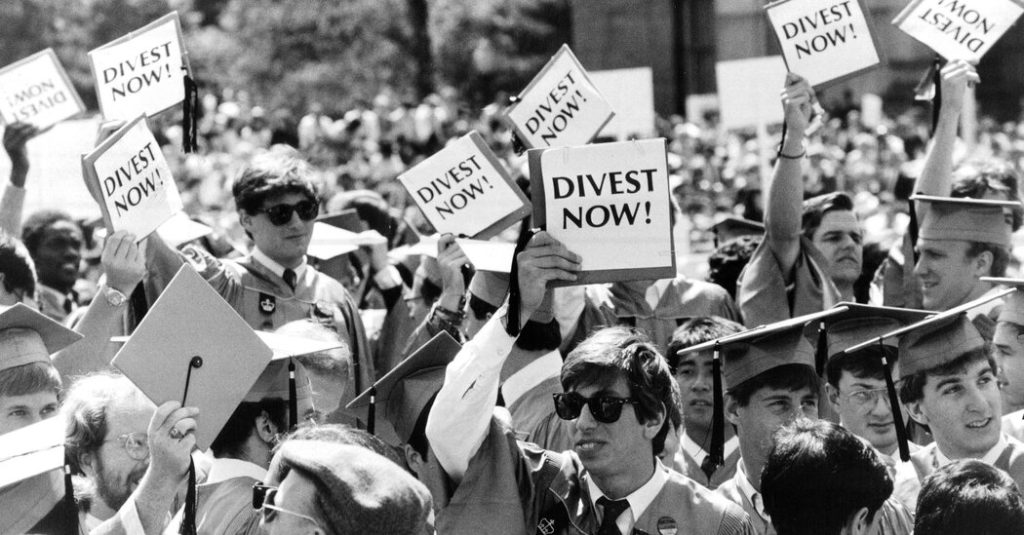Pro-Palestinian college protesters are advocating for divestment from companies and institutions that they believe profit from “Israeli apartheid.” This demand has spread to include companies like Microsoft, Airbnb, Amazon, and Alphabet for various reasons related to their ties to Israel. Some universities have agreed to discuss divestment in response to campus encampments, while others have rejected the idea, citing a commitment to base investment decisions on financial factors rather than political pressures.
College endowment managers face the challenge of balancing moral questions with the need to generate returns for universities. Endowments play a significant role in funding university budgets, making up for the gap between tuition costs and actual spending per student. Activists view endowments as communal assets and target them for divestment, believing that universities should align their investments with the values of the community. The history of divestment movements, from South Africa to fossil fuels, has influenced the current push for divestment from companies associated with Israel.
The success of past divestment campaigns has varied, with some movements leading to minimal disruption to endowments. However, the impact of divestment on industries like oil and gas has been limited, and in some cases, counterproductive. Regardless, divestment advocates hope to influence government regulation and societal attitudes towards targeted industries. The focus has shifted from fossil fuels to Israel, raising questions about the financial viability and ethical implications of divesting from specific countries or companies.
The call for divestment from Israel poses complex challenges for universities, as it requires them to navigate political and moral considerations alongside financial obligations. The demand for transparency in disclosing all investments opens the door to further scrutiny and requests for divestment from various groups. Universities must grapple with the potential consequences of divestment decisions and define the criteria for reinstating investments in the future. Balancing the competing interests of stakeholders and maintaining financial stability amid divestment pressures is a daunting task for university leaders.
While the debate over divestment continues, universities must also confront rising costs and budgetary demands that require prudent investment strategies. Investing in companies that align with ethical values while also generating returns is a complex challenge that requires careful consideration. Divestment may be a rallying cry for activists, but the practicalities of managing endowments and ensuring financial sustainability require a more nuanced approach. Universities must weigh the competing interests at play and seek to strike a balance between ethical concerns and financial responsibilities.
Ultimately, the tension between divestment movements and investment realities will persist, with protesters advocating for social change and universities striving to maintain financial stability. While the dialogue on divestment is important, the decision-making process should consider the broader implications for university endowments and their long-term sustainability. As universities navigate these complex issues, finding a middle ground that respects the values of the community while ensuring financial viability will be crucial in charting a path forward.


